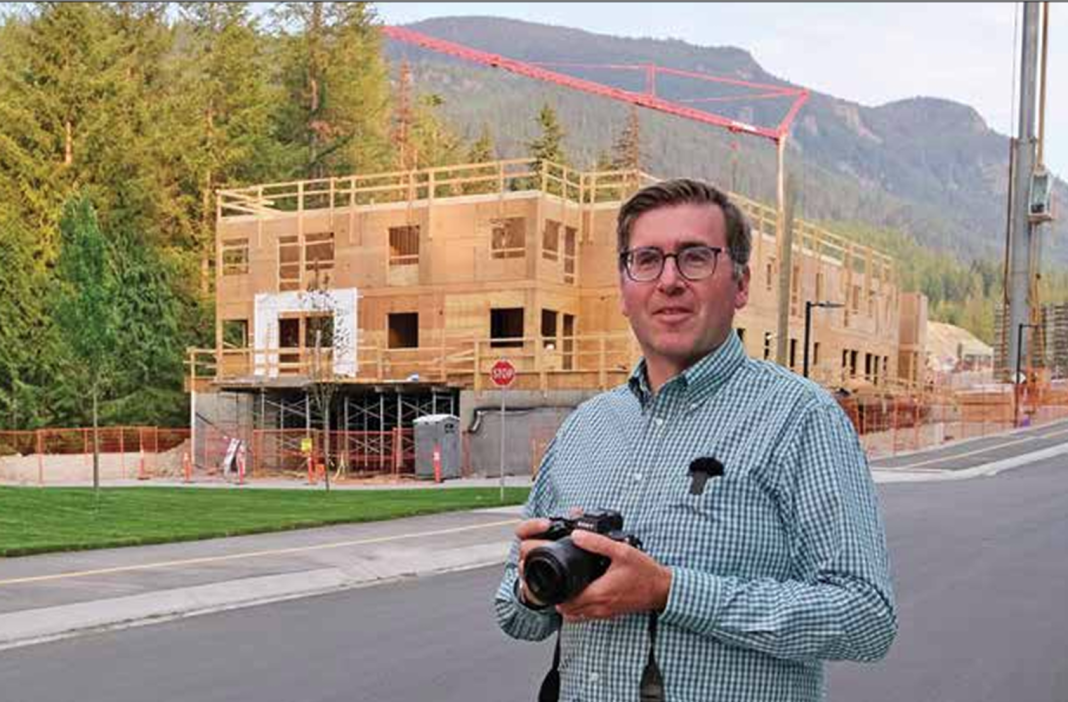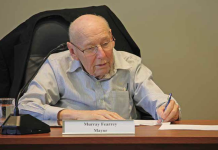If Highlands municipalities turned over surplus land for housing initiatives and considered a Haliburton County version of Whistler’s worker housing, it would be a start on accommodation challenges, Dr. Brian Doucet will tell attendees at an Oct. 16 housing summit in Minden.
Doucet, a professor for the School of Planning at the University of Waterloo, is the opening speaker. He will also screen his documentary Thinking Beyond the Market; a film about genuinely affordable housing the evening before.
In working on the film, he travelled the country, including to smaller communities. He said one of the key themes is local government must be proactive.
“The market’s not going to solve this housing issue on its own. It is not going to build enough houses at prices that local people can afford.”
He discussed publicly-owned land saying, “I’m sure the County (and the four townships) own land in those communities.”
Typically, when land is designated surplus, a township will sell it on the open market to the highest bidder, who then builds the most profitable thing for themselves.
He challenges municipalities “to think more differently and creatively about that land.”
He provided two examples. In Kitchener, the city owns a piece of land it has leased to the YWCA. The Y got funding from the province and federal governments to build affordable housing, getting more than 40 homeless women off the streets.
He also talked about the Whistler Housing Authority. It finances, develops, and manages both owner-occupied housing and rental housing. People have to work in Whistler for a qualified company; it has to be their only home. People can buy older, two-bedroom condos for $250,000. When selling, the price has to be based on the consumer price index, not the market. Further, for those who rent, it is geared to income. Three quarters of people who work in the tourist village live there.
Doucet thinks it’s a model that would work in Haliburton County. Queried about some County-specific challenges, such as the need for drilled wells and septics, and no public transportation, Doucet suggested, “even starting small; trying with one lot, one site that a municipality owns.
“If you are going to build and develop something and lease land, you don’t have the land costs. Sometimes not having to pay for the land can make more things possible.”
Doucet added it isn’t just politicians and municipal staff who have to be proactive – but communities.
Where does change come from?
He said the film addresses, “where does this change come from? You do have politicians in communities across the country who champion affordable housing initiatives and think beyond the market. They really work proactively to do things differently and use the resources and levers they have. I acknowledge municipalities are not the be all and end all. They have limited power and resources.
“The change is going to come from people getting organized, angry and passionate, but also demanding solutions.
“If you ask housing researchers, we can tell you the things that would make a big difference. Now, those are hard and a lot of them go against things that have been done for a long, long time.”
Fay Martin, on behalf of event organizer, Places for People, said the all-day event is at the Minden Hills Recreation Centre.
She said the closing speakers are Joe and Stephanie Mancini, philanthropic entrepreneurs from Kitchener (and Order of Canada recipients). She said they have engaged with their business peers to build structures that support the service community, as well as housing.
The day will also have County-based panelists. The first panel is ‘What Doesn’t Stop You’; an update about six local housing projects, with a focus on the impediments they had to overcome.
The second panel is ‘Reaching Out and Raising Up’, talking about how the County offers integrated assistance “to our vulnerable, in spite of being managed mainly from afar,” Martin said.
The event is free and open to the public. There will be a Q&A after each session, and opportunity to network. Doors open at 8:30 a.m., the event starts at 9 a.m. and should be finished by 3:30-4 p.m.





